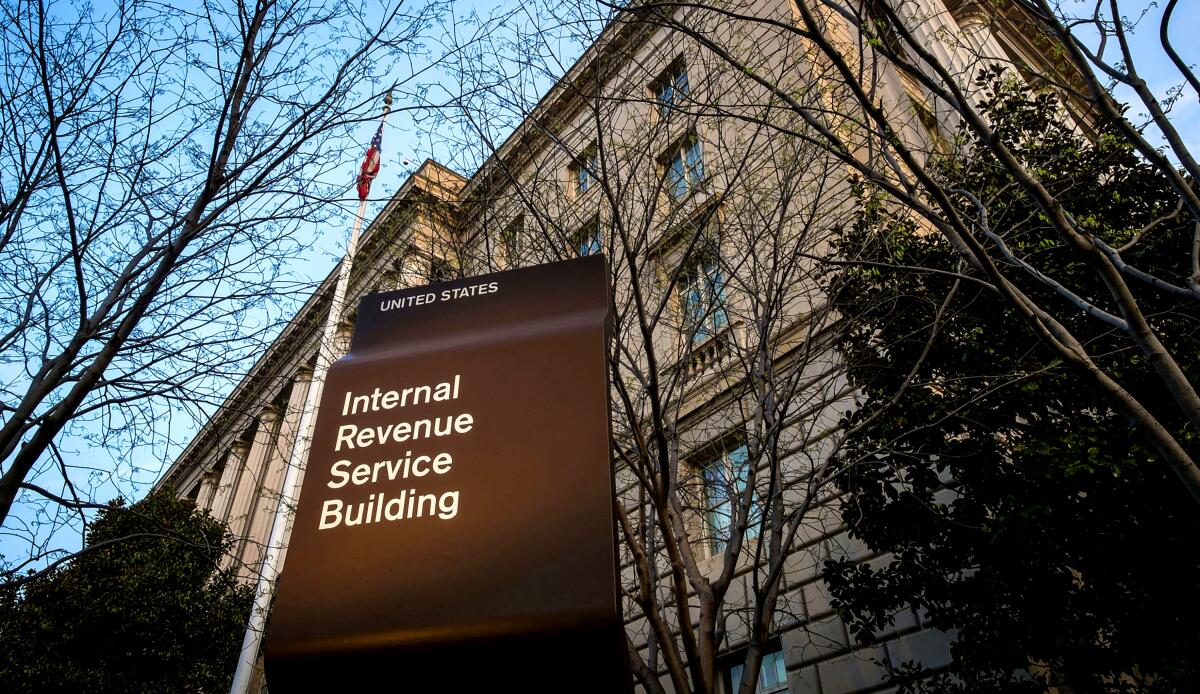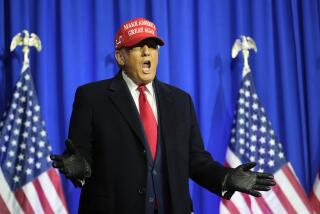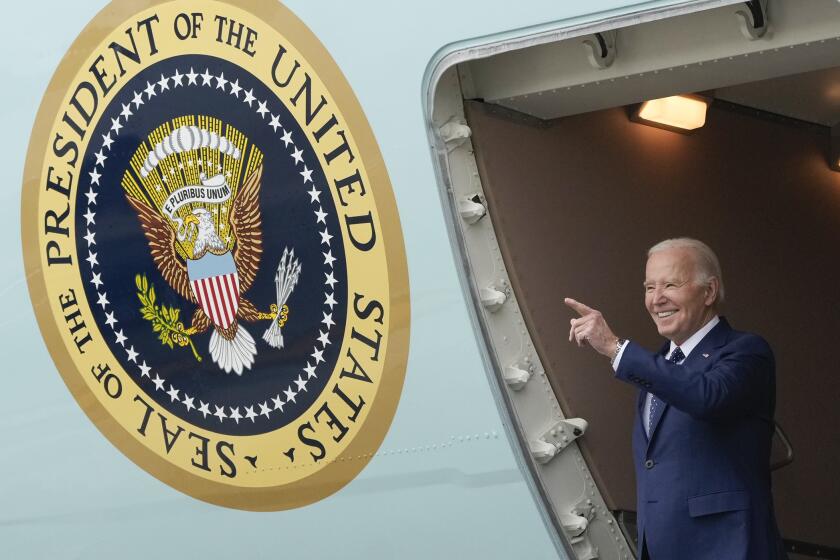Op-Ed: A radical hybrid tax reform deserves a full hearing, not a rushed vote

The new Congress and President-elect Donald Trump have made corporate tax reform one of their top legislative priorities, after repeal of the Affordable Care Act. The political jockeying is intense, but the most plausible scenario has congressional Republicans using reconciliation procedures to fast-track a corporate tax reform bill, which could be passed on straight party lines in both chambers without the possibility of Senate filibusters. Once-in-a-generation corporate tax reform thus could move from perennial dream to law in 2017.
Both parties want corporate tax reform. The system’s statutory “headline” tax rate of 35% is above world norms. At the same time, the tax code is riddled with exceptions and industry-specific subsidies that reduce total corporate tax collections to a level far below that nominal rate — but does so inconsistently and inefficiently. Meanwhile, the tax code’s international tax rules are notoriously dysfunctional.
House Republicans have a near shovel-ready tax bill in the form of their tax “Blueprint,” which they unveiled in summary form last summer. It is the probable jumping-off point. The Blueprint calls for a 20% corporate tax rate and allows firms to write off all plant and equipment investments in the year they are made.
Ramming legislation through in a few weeks ... is not the environment in which to debate these major shifts to ... our business tax policies.
The Blueprint’s 20% rate has gotten all the attention — but the bigger story is how it radically reorients the base of corporate taxation. Instead of taxing income earned by U.S. companies, the Blueprint intends to tax corporate profits derived from consumption in the United States. So the U.S. would not impose tax on Apple’s iPhone sales in China, but it would on sales here. Yet the Blueprint is not a regular consumption tax (like a sales tax), because it applies only to corporate profits.
The Blueprint’s corporate tax thus is a novel hybrid. Its design is simultaneously intriguing and terrifying, because it is completely untested; no country has ever adopted such an approach.
Some economists are optimistic that this new tax will spur growth. It would encourage firms to invest just as much as they would in a world without taxes, and would treat all forms of business investments (and modes of financing them) the same. Tax considerations thus would not influence business decisions as much as they do today.
And it would largely eradicate the “stateless income” tax planning games through which U.S. multinationals carry on their books more than $2.5 trillion in very-low-taxed offshore earnings, at the expense of the United States and other countries where those firms are actually doing business.
Implementing this radical tax design, however, raises many complex issues. Critically, the Blueprint effectively offers refunds to U.S. exporters and taxes all imports, just as in a value-added tax. From this, many members of the public and Congress have concluded that it would boost exports. But this is a famous economic fallacy: Theory predicts that the dollar would appreciate by 25% — an extraordinary jump — which would offset the apparent export subsidy or import penalty. If this happens, Wal-Mart shoppers will pay the same prices after the “border adjustable” tax as they do today, and exporters will export the same amount of goods and services.
The economic effect of the Blueprint thus depends entirely on whether currency exchange rates behave as theory predicts. If currencies don’t adjust fully, the tax’s burden will fall on consumers through higher prices, rather than on corporate profits. But if they do, U.S. investors holding assets denominated in foreign currencies (European stocks, for example) will lose trillions of dollars in wealth, because their investments suddenly will be worth less in dollar terms.
By voting for this radical reform, politicians may be putting their careers into the hands of the currency markets too.
At the same time, many legal scholars are concerned that the Blueprint’s new tax regime would violate our World Trade Organization agreements in ways that defy any simple fix. That’s a recipe for years of dispute, business uncertainty and potential retaliatory tariffs.
The treatment of banks and other financial firms under the Blueprint’s tax plan will also prove difficult.
The Blueprint eliminates the ability of firms of all stripes to deduct interest as an expense on their tax returns. That is a fundamental change, and so “grandfathering” rules must be developed in order not to bankrupt firms that incurred debt in reliance on current law. The more generous that transition relief is, however, the larger the federal deficits will be over the next decade.
All these effects might be a fair price to pay for a tax that offers businesses a more neutral tax environment and that stamps out corporate international tax shenanigans. But ramming legislation through in a few weeks via an accelerated “reconciliation” process is not the environment in which to debate these major shifts to the core structures of our business tax policies.
A tax this novel requires vigorous vetting by affected parties, and an honest assessment of the effect on the deficit. The work will be extremely technical, and there are no precedents to guide us. The likelihood of errors creeping in is high. The new tax’s design deserves a close look, not a rush job that could harm our economy or the tax revenues on which we all rely.
Edward Kleinbard is a professor at USC’s law school. He was formerly chief of staff for Congress’ Joint Committee on Taxation.
Follow the Opinion section on Twitter @latimesopinion and Facebook
More to Read
A cure for the common opinion
Get thought-provoking perspectives with our weekly newsletter.
You may occasionally receive promotional content from the Los Angeles Times.






